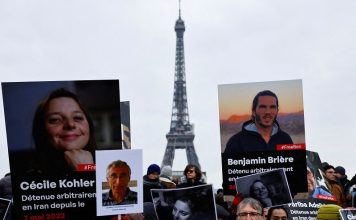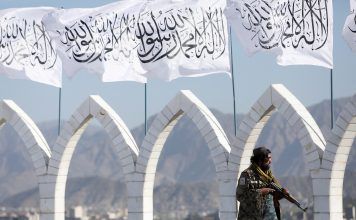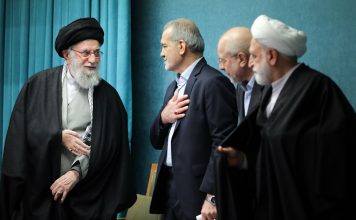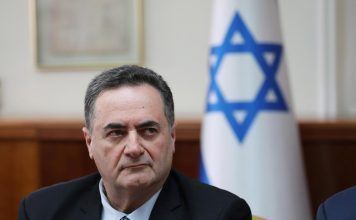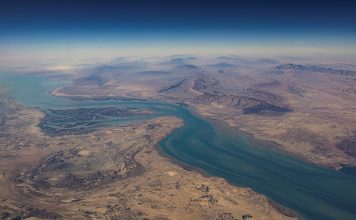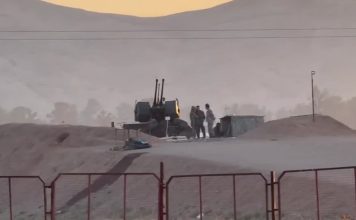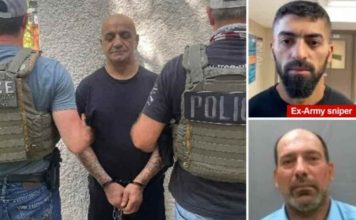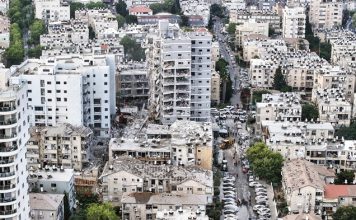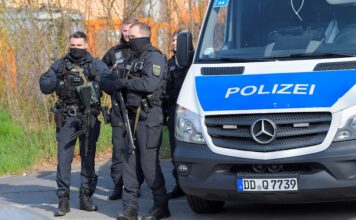The United Nations Human Rights Council announced the members of its fact-finding mission on the Islamic Republic of Iran on Dec. 20, a mission set up to investigate the Iranian government’s handling of anti-regime protests.
At least 39 protestors are currently at risk of execution or death penalty sentences, according to a Dec. 17 report by the Norway-based non-governmental organization Iran Human Rights (IHR).
🔴 BREAKING
Human Rights Council president Federico Villegas has appointed the members of the recently established Fact-Finding Mission on the Islamic Republic of #Iran:
– Sara Hossain of Bangladesh (chair)
– Shaheen Sardar Ali of Pakistan
– Viviana Krsticevic of Argentina pic.twitter.com/m1hMOuNQLH— UN Human Rights Council (@UN_HRC) December 20, 2022
Protests erupted on Sept. 16 following the death of Kurdish-Iranian Jina Mahsa Amini, while in police custody. The demonstrations initially called for an end to the Islamic Republic’s compulsory hijab laws and other policies which discriminated against women, but quickly grew into nationwide demands for regime change. Iran’s government responded with a brutal crackdown which has left more than 400 people dead, and an estimated 14,000 arrested.
Several European lawmakers have begun to sponsor Iranians on death row amid fears of more executions. The release of 16-year-old Sonia Sharifi was enabled by German lawmaker Katja Leikert, according to a Dec.15 tweet by German-Yazidi journalist Düzen Tekkal. Sharifi had been sentenced to death for taking part in the protests.
Reports that Sonia Sharifi has been freed:
"In Abdanan people dance in the streets to celebrate. The 16-year-old's execution was averted after widespread online outcry. In addition, @KLeikert had taken over political sponsorship for Sonya. ♥️"https://t.co/VDishD9bfr— Natasha Phillips ناتاشا فیلیپس (@SobukiRa) December 15, 2022
“Not succeeding in quashing protests in the last three months, Islamic Republic leaders are trying to reign by fear through protester executions. Raising the political cost by the political sponsorships, along with street and virtual campaigns and pressure from the international community, can prevent further executions,” Professor Mahmood Amiry-Moghaddam, IHR’s founder, said.
#Urgent
A video of the 18-year-old Baloch teenager who was sentenced to death during the Zahedan protests.
In published film #Shoaib_Mirbalochzhairigi is wearing a blue dress
He was sentenced to death on charges of corruption
Let us be his voice before it's too late#Mahsa_Amini pic.twitter.com/2g67Nl5ABH— Iran Human Rights Society (@iranhrs_en) December 21, 2022
The all-female team leading the Human Rights Council’s investigation consists of: Sara Hossain, acting as chairwoman; Shaheen Sardar Ali; and Viviana Krsticevic.
Hossain represents Bangladesh at the council. A lawyer at the bar of the Supreme Court of Bangladesh representing women and girls, Hossein raised legal challenges about the practice of forced veiling in the country and the use of fatwas to punish women.
A representative for Pakistan, Ali is a professor of law at Warwick University’s school of law in England, specialising in Islamic law; women and child rights; arbitrary detentions; and international human right law. She previously served as the minister of state on Pakistan’s commission on the status of women.
Krsticevic, who represents Argentina, is the executive director of the Center for Justice and International Law (CEJIL) based in Washington. A noted international human rights attorney, she specializes in human rights protections and strengthening the rule of law.
While the majority of Muslims in Iran are Shia, Bangladesh and Pakistan are predominantly Sunni-Muslim states, and likely to cause more tension between the UN and Tehran.
Meanwhile, prominent Sunni leaders in Iran have criticized the use of death sentences against protesters in recent days. Cleric Mowlavi Abdolhamid used his Friday service to call for an end to the executions, two of which have already taken place.
“With compassion, we recommend that you release the recent prisoners who were detained during the protests and not treat them harshly. Most of them are young, and very young. Free the young men and women,” Abdolhamid said during a Dec. 16 sermon.
Two of the 39 protesters — Mohammad Boroughani and Ali (Makan) Davari — are 19, while several are in their early twenties.
Celebrated Iranian footballer Amir Nasr Azadani is also at risk of execution after being accused of playing a part in the death of three security force members in Isfahan on Nov. 16.
Political dissident and rapper Toomaj Salehi faces the death penalty for ‘Efsad-fil-arz’ (corruption on earth) through “publishing widespread lies, and causing major damage.”
The parents of Mehdi Mohammad Karami made an international plea for their son to be spared execution in a Dec. 18 video tweet.
“It was difficult for them to sit in front of the camera and speak the words, and it took hours to record these 47 seconds,” the caption for the tweet said.
Plea to save their son's life.
"Request by the parents of Mehdi Karami #محمدمهدی_کرمی
It was difficult for them to sit in front of the camera and speak the words, and it took hours to record these 47 seconds." #iranexecution https://t.co/5QsC6W40KN— Natasha Phillips ناتاشا فیلیپس (@SobukiRa) December 19, 2022
Rights groups have criticized the death sentences and said the legal processes had been rushed, and had included the use of forced confessions and torture to obtain the confessions.
A voicemail from the political prisoner Khaled Pirzadeh outlining allegations of torture while in detention, was sent to the UN special rapporteur on human rights in Iran, Javaid Rehman, according to a Dec. 16 report by news outlet Radio Farda. Pirzadeh has been detained in Ahvaz Central Prison since 2019.
In the message, Pirzadeh, a former bodybuilding champion, said his torture had resulted in a number of injuries including a fractured spine and a broken leg.
“I am talking to you from the dungeons of oppression and tyranny in Iran. For more than 16 months, I have been hospitalized in Ahvaz Central Prison due to the injuries caused by the brutal agents of the Islamic republic,” Pirzadeh said.

